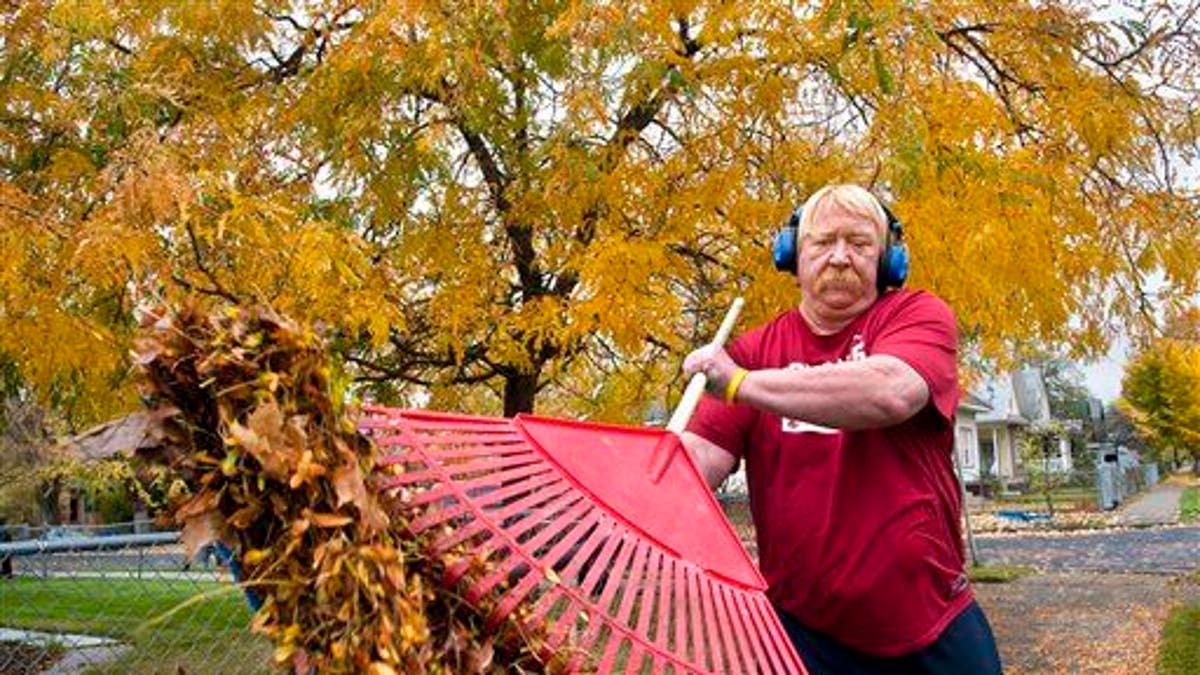
Kick back. Relax. Don't rake leaves. (AP Photo/The Spokesman-Review, Dan Pelle)
Your honey-do list just got one item shorter, and you can tell your spouse he or she can't argue it—because scientists say so. Washington state's KING picks up some fresh advice offered by the National Wildlife Federation in a blog post titled "What to do With Fallen Leaves" (summary: not much).
Leave your fallen leaves on the ground and you'll actually be doing Mother Nature a service, it explains, because dry, dead leaves create a healthy habitat for salamanders, chipmunks, earthworms, and more to live in or source food from.
Further, a number of butterfly and moth species pass the winter as pupae (ie, a non-feeding stage between larva and insect) within your leaves. Ditch the leaves, and you don't just get rid of them—you reduce the food supply available to birds in the spring.
If you're too persnickety to have a leave-strewn lawn all winter, rake them off the lawn but into your plant and flower beds, the post suggests.
Composting is a best practice, too, and leaf blowers absolutely are not: They create noise pollution. (Leaves already buried by snow? Here's how to shovel without dying.)
This article originally appeared on Newser: Scientists: Be Lazy, Don't Rake Leaves
More From Newser








































